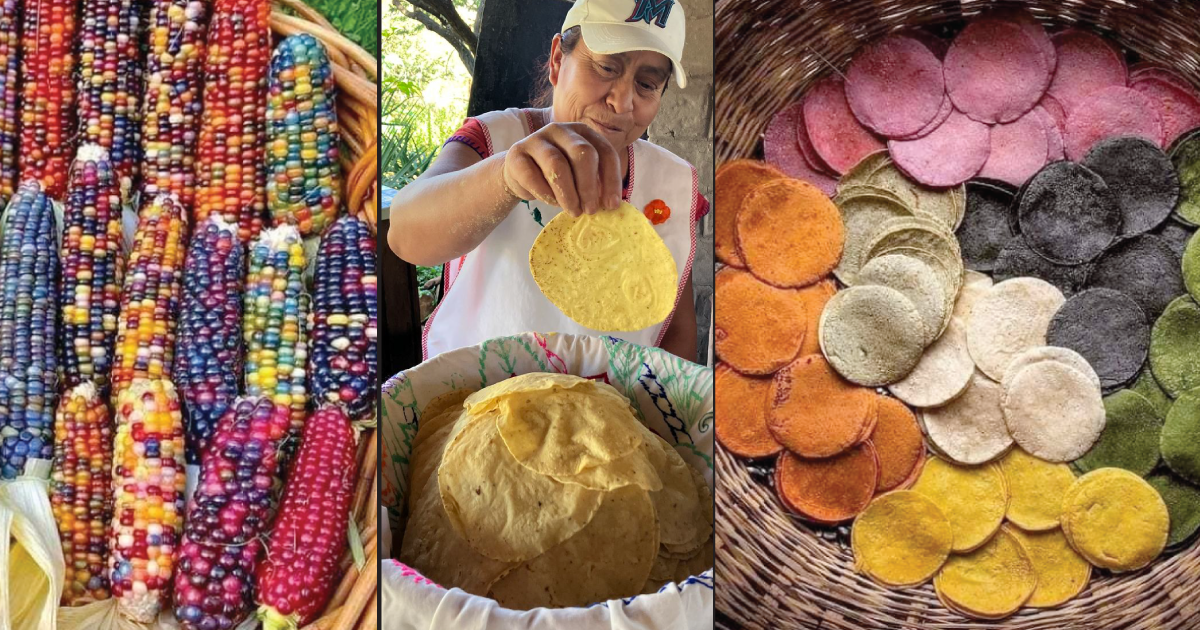
BILLIONS AGAINST BAYER
Using a Trade Agreement to Bully Mexico Into Importing Monsanto-Bayer’s GMO Corn
By Alexis Baden-Mayer, Political Director, OCA:
Mexico has been making bold policy moves against genetically modified crops and the toxic pesticides they were engineered to be grown with, by phasing-out imports of GMO corn and showing its support for food sovereignty, soil regeneration and agroecology.
But, how serious could Mexico be, if it is now ceding its national sovereignty to a three-person panel of the Canada-United States-Mexico Agreement (CUSMA) under which the United States is challenging its 2023 Corn Decree?
Supposedly, Mexico wants food sovereignty and self-sufficiency, but apparently, it values trade with the United States and Canada so much that it is willing to let its democratically enacted laws be superseded by this so-called “free-trade” agreement. (What’s so “free” about it, if it can be used to force a country to import stuff it doesn’t want?!)
This is an absurd and illegitimate process where, under the dispute settlement provisions of the Canada-United States-Mexico Agreement, three trade lawyers will decide whether Mexicans can be forced to eat the United States’ genetically engineered corn, soaked with Monsanto-Bayer’s toxins.
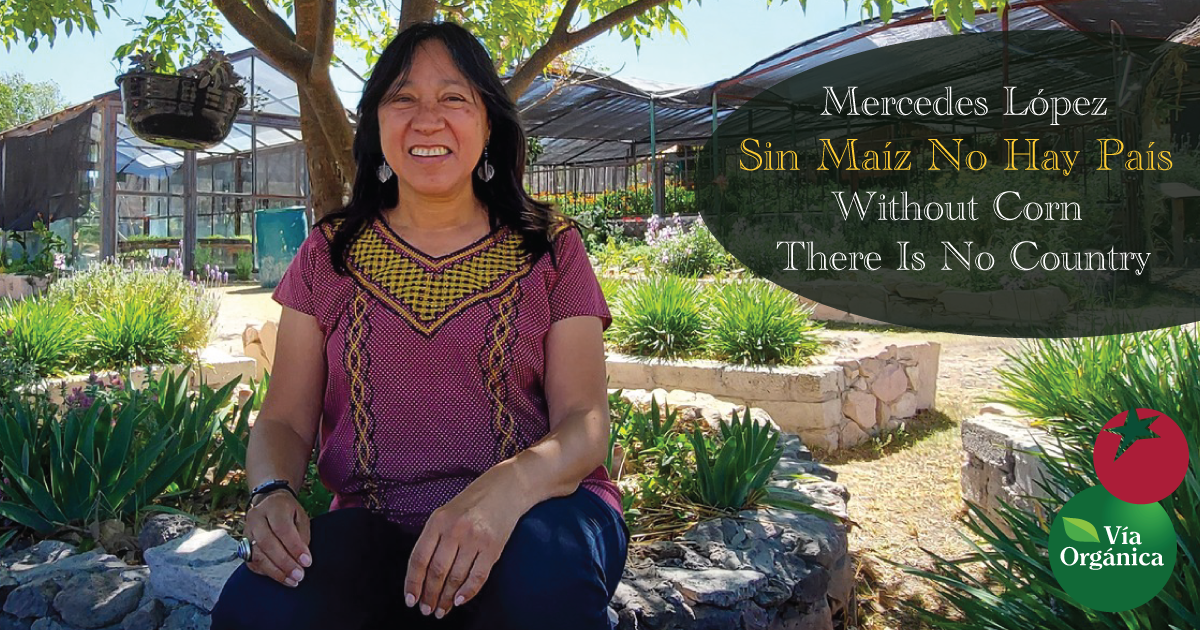
TAKE ACTION
Mexico’s Right to Refuse GMOs
The Organic Consumers Association (OCA), as well as the Mexico branch of OCA, Asociación de Consumidores Orgánicos, and our sister organization, Vía Orgánica, have been fundamental drivers since the beginning of the class action lawsuit against GM corn, which began in July 2013 and in September of that year obtained a precautionary measure. The precautionary measure has stopped the commercial planting of genetically modified corn in Mexico, which is the center of origin and permanent protector of the diversification of corn. Our director of Vía Orgánica in México City, Mercedes López, is currently the representative of this collective demand that has managed to stop attempts to appropriate and contaminate a sacred seed for the Mesoamerican people. Corn is not just a staple food in this part of the world, but is also part of the cosmogony, tradition, legends, religion and rituals. It is important that those of us in the US work from this side of the border to make our voices heard in support of these groups’ efforts. Please take action today!
Mexico has banned the domestic production of genetically engineered corn since 2013.
In 2023, President Andrés Manuel López Obrador issued a decree banning the use of genetically engineered corn for dough and tortillas. The 2023 Corn Decree additionally directed Mexican biosafety authorities to phase out genetically engineered corn from animal feed and other forms of human consumption.
Mexico doesn’t want to import GMO corn, but using a 2020 so-called “free trade” agreement between Mexico, Canada and the United States, the U.S. thinks it can force it to do so.
The U.S. has invoked the dispute settlement provisions of the United States-Mexico-Canada Agreement (USMCA), which allows them to turn decision-making authority over to a three-person panel, appointed and paid for by the two countries.
Now, three trade-lawyers-for-hire (not actual judges) are arbitrating the dispute. They have been given the power to decide whether the U.S. can force Mexicans to eat Monsanto-Bayer’s pesticide-drenched GMO corn.

HEALTH
Experts Think Turmeric Can Help With Pain
By Jennifer Anandanayagam, Health Digest:
“Ibuprofen is a popular and effective nonsteroidal anti-inflammatory drug (NSAID) that many of us turn to for pain relief, bringing down a fever, and tackling something like delayed onset muscle soreness (DOMS) after a particularly grueling workout.
However, taking ibuprofen daily comes with negative side effects. Chronic use of this drug has been associated with gastrointestinal issues like diarrhea, bleeding, nausea, ulcers, and an upset stomach. This is because regular ibuprofen use can affect your gut health. Other health concerns that come with overuse of this NSAID are heart failure, high blood pressure, kidney damage, liver toxicity, and stroke.
With more and more people looking to alternative methods to combat pain with lifestyle practices like yoga, breathing exercises, and overall diet tweaks, one popular spice, in particular, has come to the forefront. We’re referring to the mildly aromatic and deep spicy yellow turmeric.”
Read about how turmeric may be able to help with combat chronic pain

USDA WATCH
Pesticide Residues in Food Do Not Tell the Full Story on Hazards and the Importance of Organic
Beyond Pesticides reports:
“According to a new analysis by Consumer Reports, the U.S. Department of Agriculture (USDA) Pesticide Data Program (PDP) Annual Summary has once again failed to accurately portray the safety of some of the most commonly sold fruits and vegetables in the United States. A review of seven years of PDP data show that 20% of the foods tested pose a “high risk” to the public and 12 specific commodities are so dangerous that children or pregnant people should not eat more than one serving per day, according to Consumer Reports analysis. Consumer Reports contend that U.S. Environmental Protection (EPA) pesticide residue tolerances are too lenient.
The Consumer Reports results fly in the face of the rosy outlook reported by the USDA in its 2022 PDP Annual Summary, which found that 99% of the fruits and vegetables the agency tested “had residues below the established [EPA] tolerances.” Agencies typically point to acceptable or legal residues as protective of health and the environment, despite potential adverse effects associated with inadequate assessment of health outcomes, such as endocrine disruption, vulnerable population groups, exposure to mixtures and synergistic interactions, and more.”
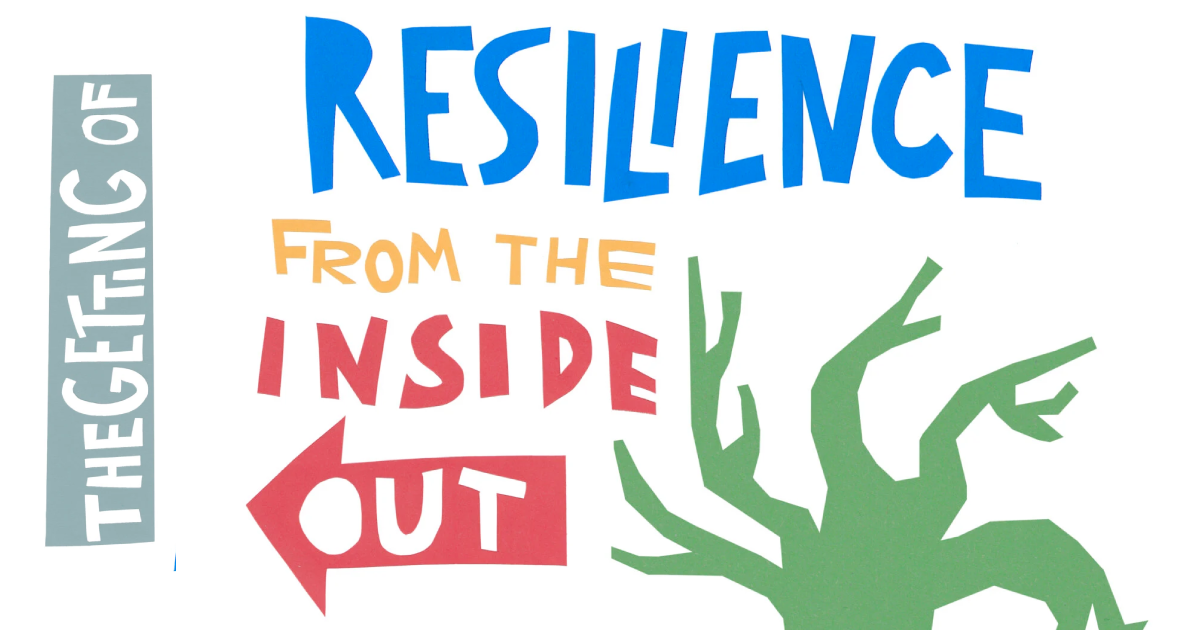
BOOK CORNER
Understanding and Fostering Resilience
Sally Baker, Author, Chelsea Green Publishing:
“Award-winning therapist Sally Baker shares her professional and personal experience of what it takes to survive trauma, providing practical guidance in the techniques she has refined working with an international array of clients – hypnotherapy, brain wave recursive therapy, EFT and more.
To combat physical nasties we need a strong immune system. To combat negative life events we need resilience. In The Getting of Resilience from the Inside Out, award-winning therapist Sally Baker gives us a practical guide to developing a wider understanding of resilience and to fostering it so that we have the essential perseverance and drive to emerge successfully when confronted with life’s inevitable and often unexpected challenges. Sally explores some of the key family dynamics that can result in unhelpful ways of thinking about oneself which may undermine the natural development of resilience and in its place impose a cycle of self-sabotaging behavior.”
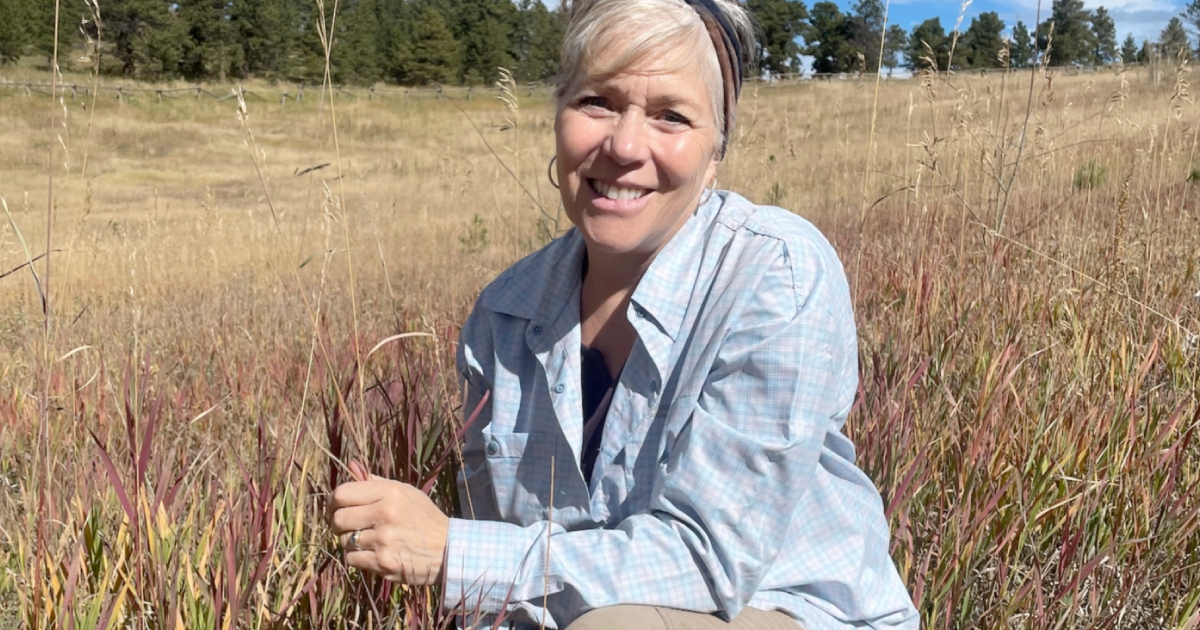
SAVE THE BEES
How One Woman’s Mission to ‘Rewild’ Urban Spaces Is Saving Native Bees
Dr. Joseph Mercola writes:
“Story at-a-glance:
- Pollinator Advocates (PA) is an advocacy program founded by Andrea Montoya to reintroduce thousands of native plants to public spaces around Boulder, Colorado. The goal is to provide wild pollinators with a natural habitat that allows them to thrive for many generations to come
- With 35% of the world’s crops and 75% of flowering plants dependent on honeybees and other pollinators to reproduce, this type of advocacy is without a doubt one of the most crucial movements we should actively support
- A 2022 study published in the journal Environmental Health Perspectives estimates the loss of food production due to lack of pollinators led to 427,000 excess annual deaths worldwide
- There are small but impactful practices that you can do to help save the bees and other pollinators — more tips below”
Read more: How One Woman’s Mission to ‘Rewild’ Urban Spaces Is Saving Native Bees
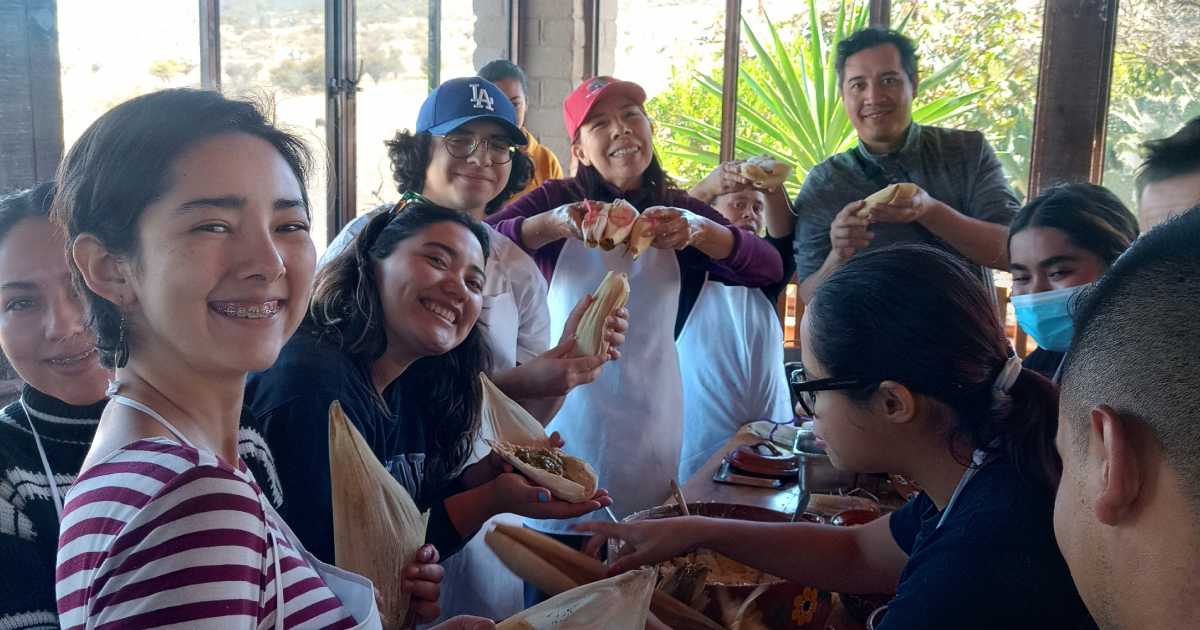
REGENERATION
Connecting the Dots to Grow the Organic Regenerative Movement
Ronnie Cummins, Organic Consumers Association:
In addition to highlighting positive solutions, it is important to keep in mind that people’s situations and perspectives are different. We all have different passions or priorities. One size or one approach does not fit all. Therefore, we need to integrate our green justice and Regeneration messages with the specific issues and concerns that are most important to grassroots constituencies, and then lay out, in everyday language, a strategy that makes people understand that we can actually solve the problems they care about the most, while also solving a host of other pressing problems at the same time. Only by starting from where people are at, and then connecting the dots, can we capture the attention and imagination of a critical mass of the global grassroots and get them to start thinking about how they can participate in our new Movement and new economy.
Objective and subjective conditions for change are different in every country in the world, and to some extent differ as well in the sub-regions and local communities of these 195 countries. Everyday people everywhere, including the most impoverished and vulnerable communities, have their burning issues as well as their secondary issues, and an inherent desire to alleviate and, if possible, solve the problems that are pressing down on them, in many cases threatening their very survival. In the activist community, major focus areas, in most cases reflecting the concerns of everyday people, include inflation and the high cost of living, freedom of choice and Constitutional liberties, climate change, environmental pollution, health, social justice, jobs and economic justice, peace, and democracy. Unfortunately, campaigners, both on the local and national/international levels, often work in isolation from other sectors, each in their own separate silos. This perpetuates tunnel vision in the body politic, parochial or sectarian attitudes, political polarization, and an overall weakness in global civil society.
Read about how the degenerate system that needs to be replaced, and can be replaced
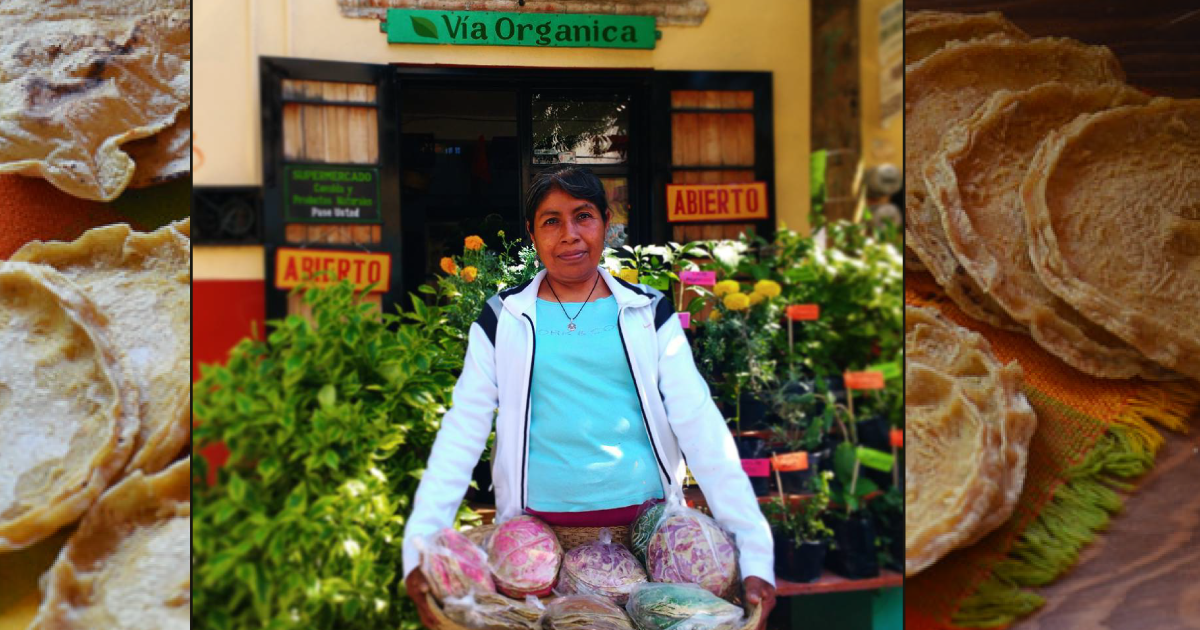
GMOs
Mexico’s New Food Rights Law
By Alexis Baden-Mayer, Political Director, OCA:
Mexico is taking action! It has a new law guaranteeing the right to adequate and sustainable food! The new General Law of Adequate and Sustainable Food (LGAAS by its Spanish acronym) took effect on April 18, 2024 and implementing regulations will be established within 180 days.
This new law follows Mexico’s 2023 Corn Decree to gradually eliminate genetically engineered corn used for human consumption and animal feed and it includes mandatory warning labels on genetically engineered foods.
Read more: Mexico Includes GMO Labeling Requirements in Ambitious New Food Sovereignty Law
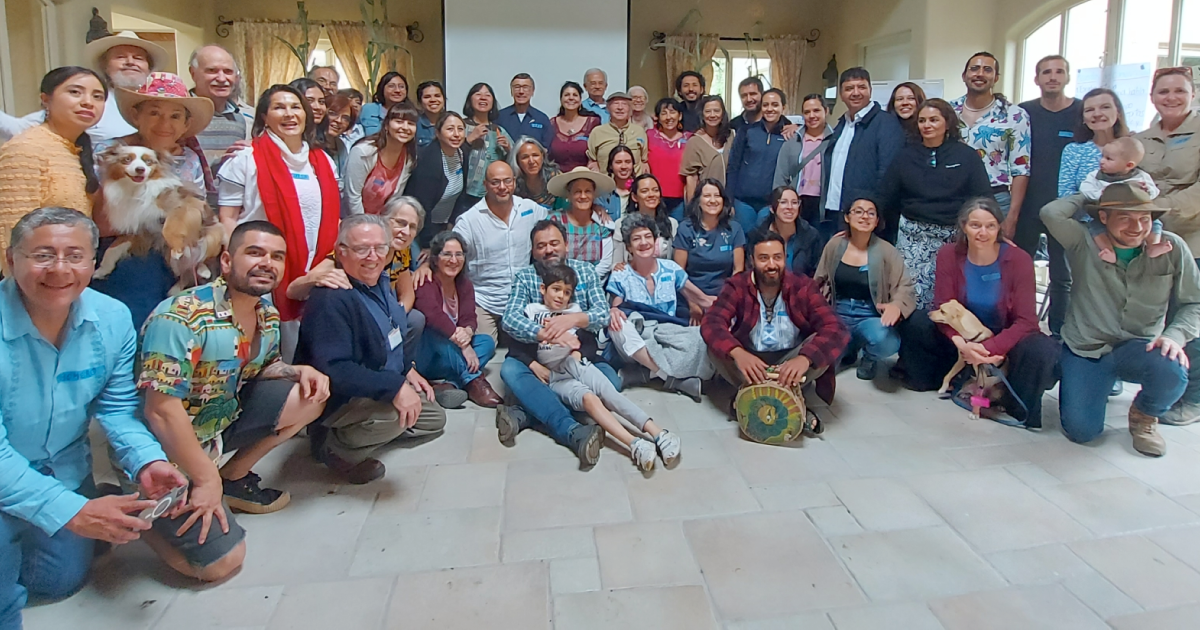
SUPPORT OCA & RI
Together We Can Win.
In an era of corporate globalization and increasing industrialization and contamination of the food supply, green and progressive-minded people have no choice but to organize and campaign on a transnational basis. Isolated and fragmented citizens are no match for the Monsantos and the multinational grain cartels. But together we can win.
OCA’s sister organization, Via Organica, and our Mexico team (over 50 staff members), have worked tirelessly for the last 15 years south of the border to ban GMOs and to promote organic and regenerative food and farming.
One of the coalitions that Via Organica works with, Sin Maiz No Hay Pais (“Without Corn There Is No Country”) has demonstrated the power of over 300 organizations successfully working together, utilizing public education, GMO boycotts, and litigation.
Please consider making a donation to help us continue our work to stop U.S. plans to bully Mexico into buying GMO corn and work towards food sovereignty for all:
Make a tax-deductible donation to Organic Consumers Association, a 501(c)(3) nonprofit
Make a tax-deductible donation to Regeneration International, our international sister organization

ENVIRONMENT & CLIMATE
The High Cost of Year-Round Asparagus
Matthew Zuras writes for Epicurious:
“How did this icon of spring go from seasonal treasure to year-round supermarket staple? Free trade and the war on drugs provide some clues.
There’s a Christmastime scene in Alexander Payne’s Oscar-nominated coming-of-age drama The Holdovers, set in a fictional Massachusetts boarding school in the early 1970s, in which a group of students grumble over platters of chicken, potatoes, and vibrant, firm stalks of asparagus. It’s the setup for a joke as puerile as the schoolboys—the punchline being the slender green vegetable’s notorious ability to produce pee that smells like the mouth of hell.
The joke also relies on a subtle yet stunning anachronism: There’s practically zero chance that any Bay Staters were eating fresh asparagus in December of 1970. Canned, maybe—but fresh? Nah.
It’s strange to imagine such a scenario now. As I write this in late winter in New York City, it is possible for me to place an online grocery order and have hand-delivered before dawn tomorrow not one but multiple kinds of fresh asparagus: organic asparagus, pencil asparagus, jumbo asparagus (currently advertised as “peak quality”), microwavable bags of trimmed asparagus, non-microwavable bags of same, and just plain ol’ asparagus.”
Read more about how this seasonal treasure has become to year-round supermarket staple
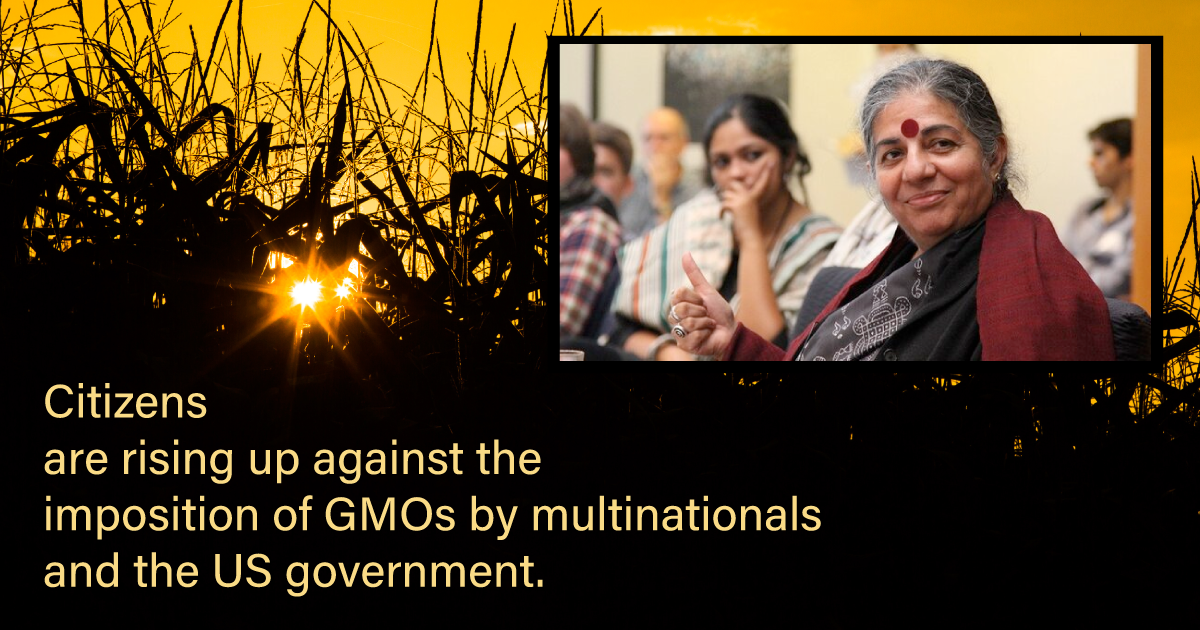
FOOD SOVEREIGNTY
GMO Bio-Imperialism
Dr. Vandana Shiva writes for Navdanya International:
“Over the past few decades, GMO crops have been imposed in countries around the world, touted as a solution to food insecurity and malnutrition crises. However, hunger, disease and malnutrition have increased, while biodiversity has declined and toxins have spread. GMO imperialism has destroyed the lives and livelihoods of small farmers and biodiversity in the centers of origin. These centers of biodiversity origin are the cradles of the world’s food supply and protection against disease, climate challenges, natural disasters or other obstacles to food production.
In Mexico, which is the center of origin of corn, there has been a long struggle by society and organized communities against GMO imperialism which threatens the subsistence and culture of local peoples. It is following this mobilization that the Mexican society obtained a ban on planting genetically modified corn through a collective lawsuit brought against the companies Bayer-Monsanto, Syngenta and Corteva Agriscience. This ban is still in effect.
Recently, the Mexican government issued an executive order phasing out the use of glyphosate and banning the use of genetically modified corn in tortillas, a staple food. Faced with this decision, the US government, on the basis of the United States-Mexico-Canada Free Trade Agreement (USMCA), activated the dispute resolution mechanism with the aim of canceling the order and forcing the introduction of GMOs into the country.”

LITTLE BYTES
Other Essential Reading and Videos for the Week
Moms Pressing Regulators for Nontoxic and Nutrient Dense Food
We Shouldn’t Have Any Beef With Conscientious Farmers
Virus Hunter at Center of ‘Lab Leak Theory’ Grilled by Congressional Committee
Electronic ID Mandate Is Another Hit To Small Farmers
Louisiana Sues EPA for Emails With Journalists and Cancer Alley Residents
They Transformed a Sad, Junk-Filled Yard Into a DIY Native Plant Wonderland
Bayer’s Monsanto Wins Reversal of $185 Million Pcbs Verdict in Washington Court
Orangutan’s Use of Medicinal Plant To Treat Wound Intrigues Scientists
Florida Governor Bans Cultivated Meat in Fight Against “Elites”
The Celestial Garden, Growing Herbs, Vegetables, and Flowers in Sync with the Moon and Zodiac
Cicadas Rising: A Visual Guide to 2024’s Rare Dual Appearance
New Laws Protect Bird-Friendly Yards From Neighborhood Rules






